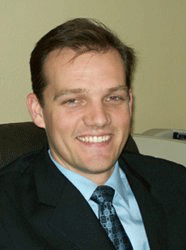



A legal separation or divorce can have a profound effect on your estate planning. Under the California Probate Code, a “surviving spouse” has no inheritance rights if there is an “order purporting to terminate all marital or registered domestic partnership property rights.” Put another way, if you die without leaving a will, and you are legally separated from your spouse at the time of your death, he or she will not inherit under California intestacy law. Court Rules Probate Code Language Does Not Apply to County Pensions The Probate Code does not cover all property issues that may arise after you die. Many retirement and pension plans are governed by separate laws that allow you to designate a beneficiary independent from the provisions of your will or trust. A divorce or legal separation may not necessarily affect such designations. For example, a California appeals court really issued a published opinion with respect to the effect of legal separation on pension plans administered under the County Employees Retirement Law (CERL). This particular law governs benefits for retired workers in 20 of California’s 58 counties. Among other provisions, CERL entitles a “surviving spouse” to continue receiving a portion of a deceased retiree’s monthly benefits for the remainder of his or her life. In this particular case, a man who worked for Contra Costa County retired in 1988. He married in 1994. The couple separated 14 years later but never divorced. Instead, they reached a property separation agreement in 2013. Under its terms, the husband retained ownership of his county pension but agreed to maintain the wife “as a pension beneficiary,” and intended for her to be his “surviving spouse.” When the husband died in 2014, the board administering the pension plan refused to acknowledge the wife as the surviving spouse. The board cited a prior opinion from its outside counsel that adopted the definition of “surviving spouse” used in the Probate Code. Since there was a separation agreement in effect at the time of the husband’s death, the board said the wife could not receive the surviving spouse’s benefits. The California First District Court of Appeals disagreed. Reversing a lower court’s ruling for the retirement board, the appeals court noted the “plain meaning” of surviving spouse included the wife in this case, since there was no divorce. Since she outlived her husband, that made her the “surviving spouse.” The First District acknowledged, however, that the law was ambiguous, especially given the contradictory language in the Probate Code. But there are a number of other California statutes where “a surviving legally separated spouse is treated in the same manner as any other surviving spouse,” the court said, and there was no basis for “inferring” the state legislature intended to exclude separated spouses under the CERL. Get Help From a California Estate Planning Lawyer It is important to review the rules regarding beneficiary designations for your own retirement and pension plans, which can vary depending on the plan and what county you worked in. An experienced San Diego estate planning attorney can assist you. Contact the Law Office of Scott C. Soady if you need to schedule a consultation today.
Posted in: ESTATE PLANNING and PROBATE Published on: July 10, 2017 Updated: July 9, 2017 8:24 pm Comments are closed. Contact Us Free in-Office Consultation 1-877-435-7411




Attorney Scott Soady
TopicsThe Clock Tower,
16466 Bernardo Center Dr # 260
San Diego, CA 92128
Toll Free: 877-435-7411
Phone: 858-618-5510
Phone: 619-435-7999
Phone: 760-740-8500
Fax: 858-618-5511
Attorney Advertising
To ensure compliance with IRS regulations, we inform you that any tax advice contained in this communication is not intended to be used, and cannot be used, for the purpose of avoiding penalties under the Internal Revenue Code or promoting, marketing, or recommending to another party any transaction or matter discussed herein. Additionally, some postings may be back dated and no reliance can be placed on the state of the law still being the same.
This site is protected by reCAPTCHA and the Google Privacy Policy and Terms of Service apply.
Please do not include any confidential or sensitive information in a contact form, text message, or voicemail. The contact form sends information by non-encrypted email, which is not secure. Submitting a contact form, sending a text message, making a phone call, or leaving a voicemail does not create an attorney-client relationship.